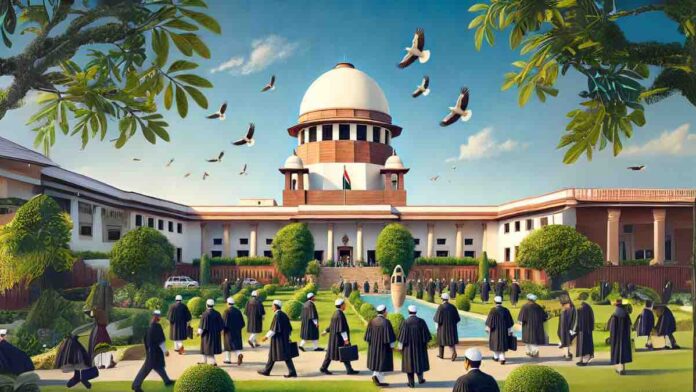The Supreme Court has ruled that while a developer is obligated to refund the amount paid by a homebuyer along with reasonable interest in cases of delayed possession, it cannot be held liable for repaying the interest incurred by the buyer on loans taken to fund the purchase. The judgment was delivered by a bench
To Read More Please Subscribe to VIP Membership for Unlimited Access to All the Articles, Download Available Copies of Judgments/Order, Acess to Central/State Bare Acts, Advertisement Free Content, Access to More than 4000 Legal Drafts( Readymade Editable Formats of Suits, Petitions, Writs, Legal Notices, Divorce Petitions, 138 Notices, Bail Applications etc.) in Hindi and English.




